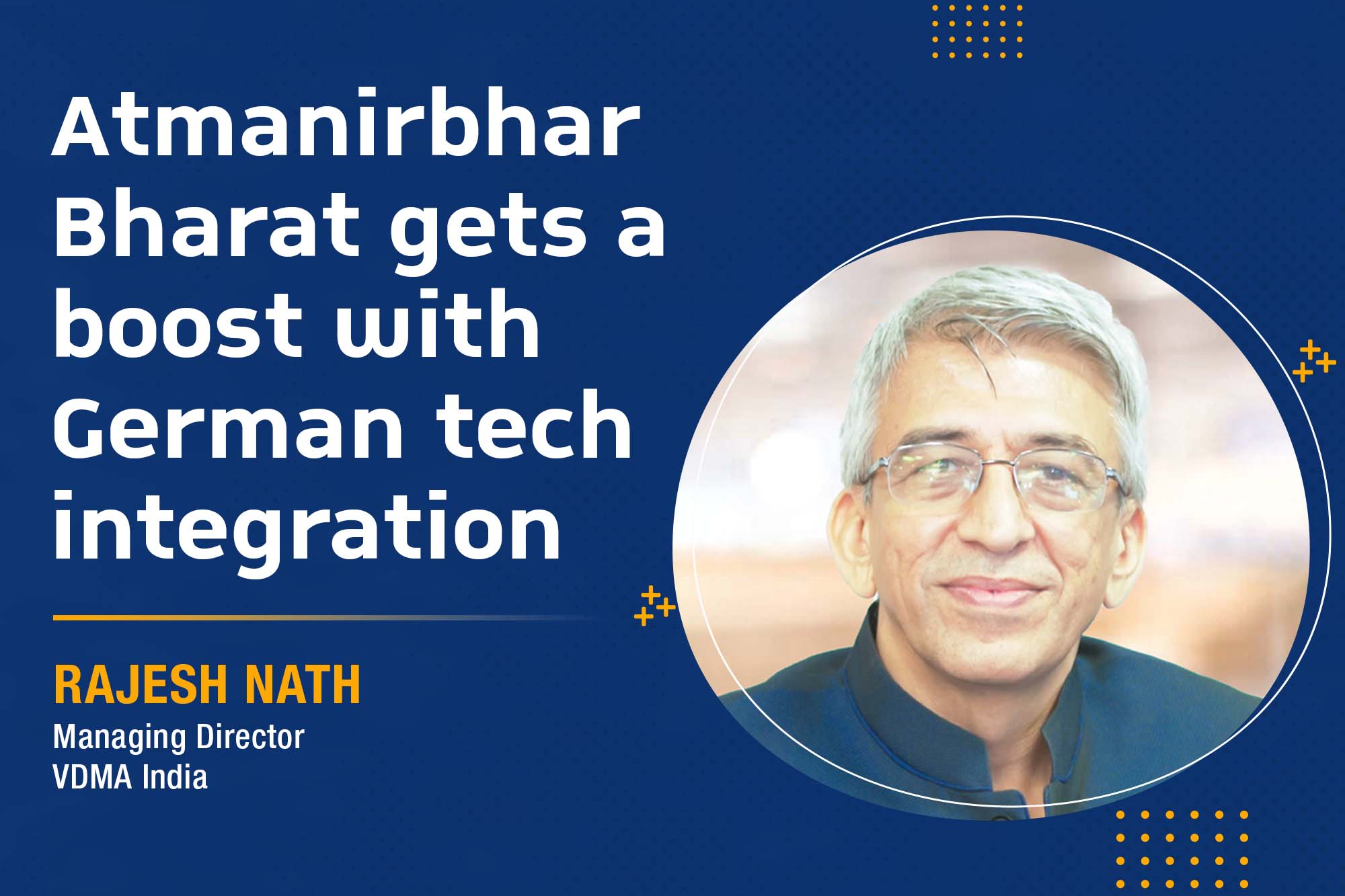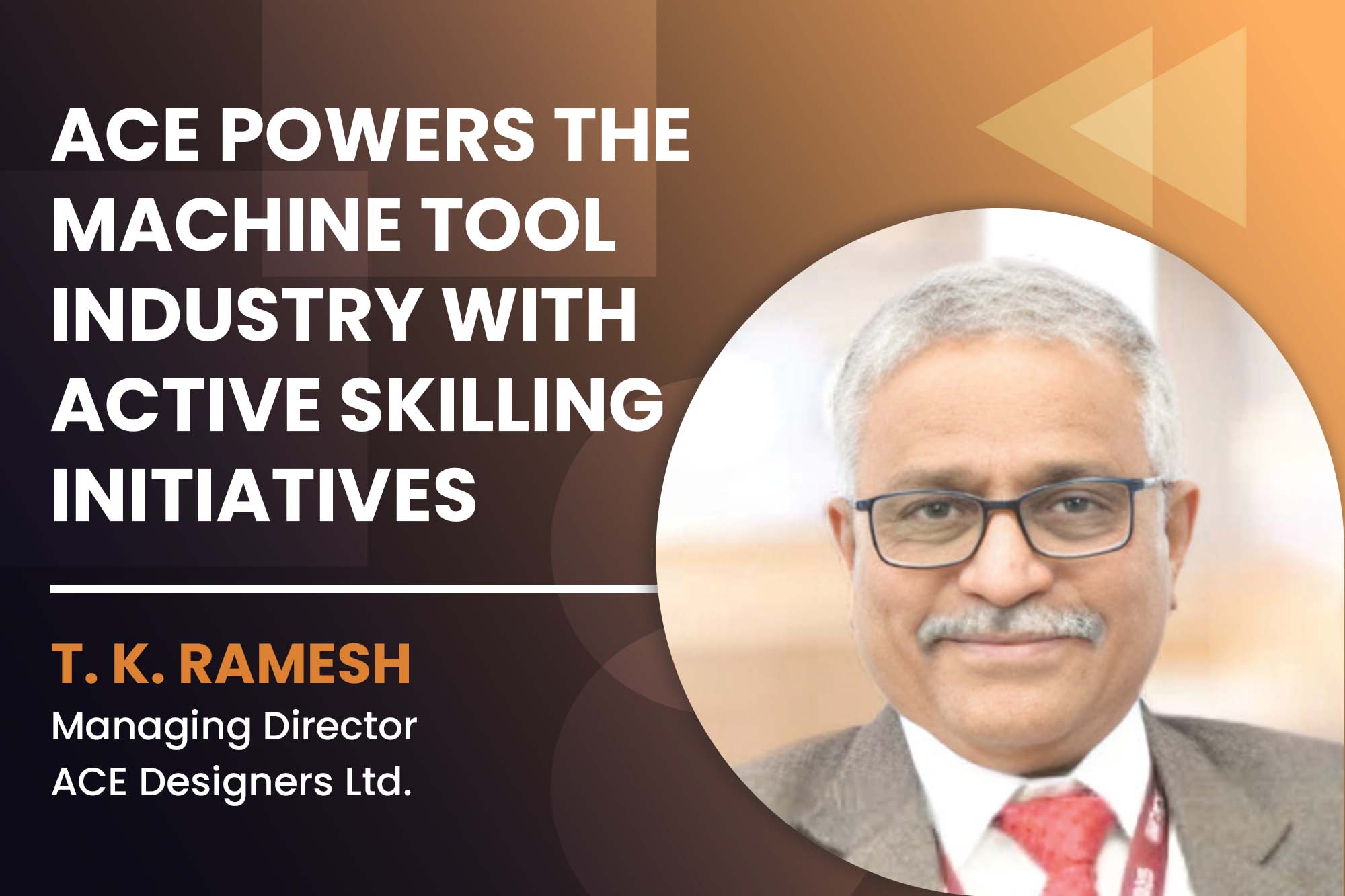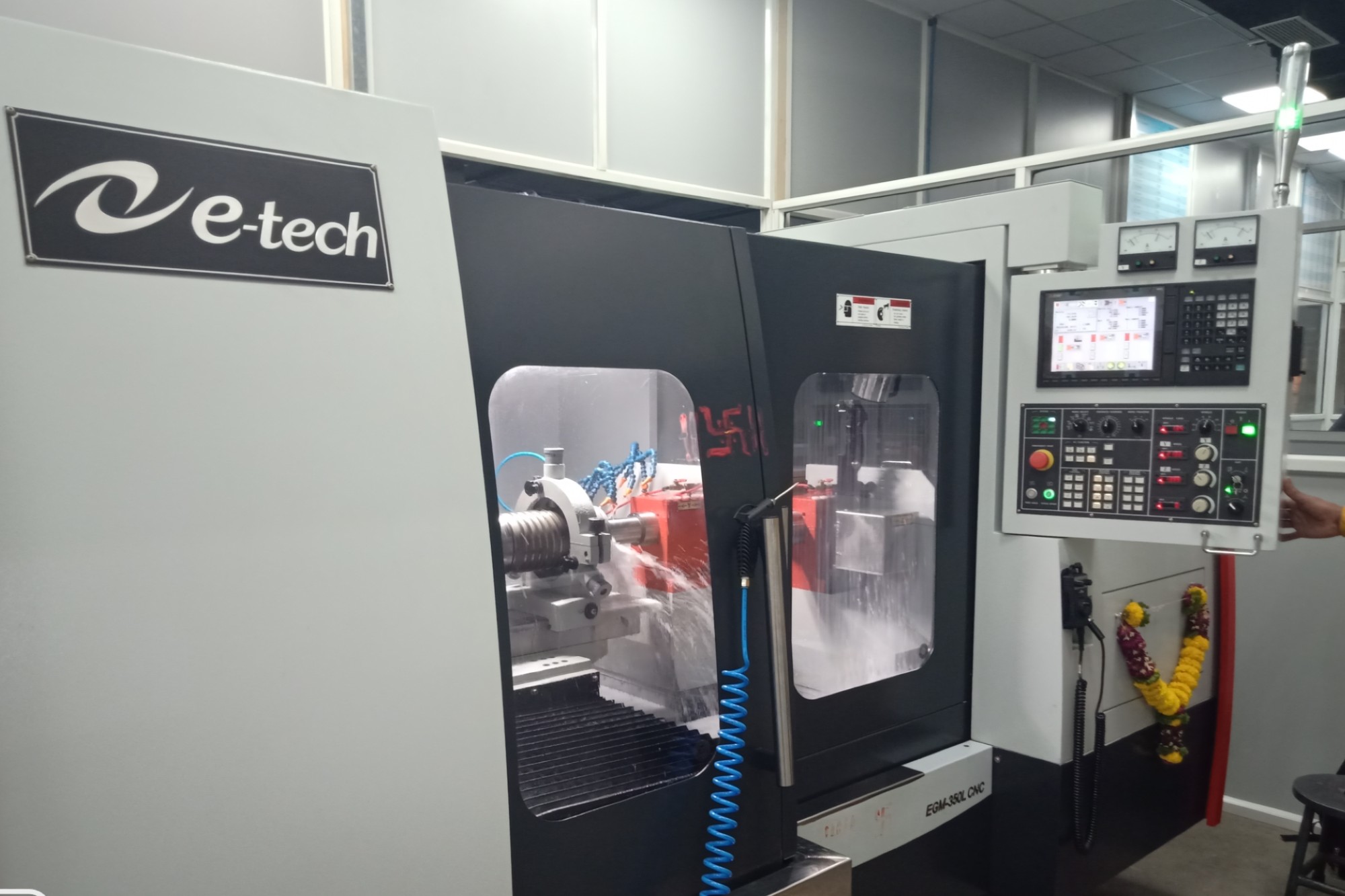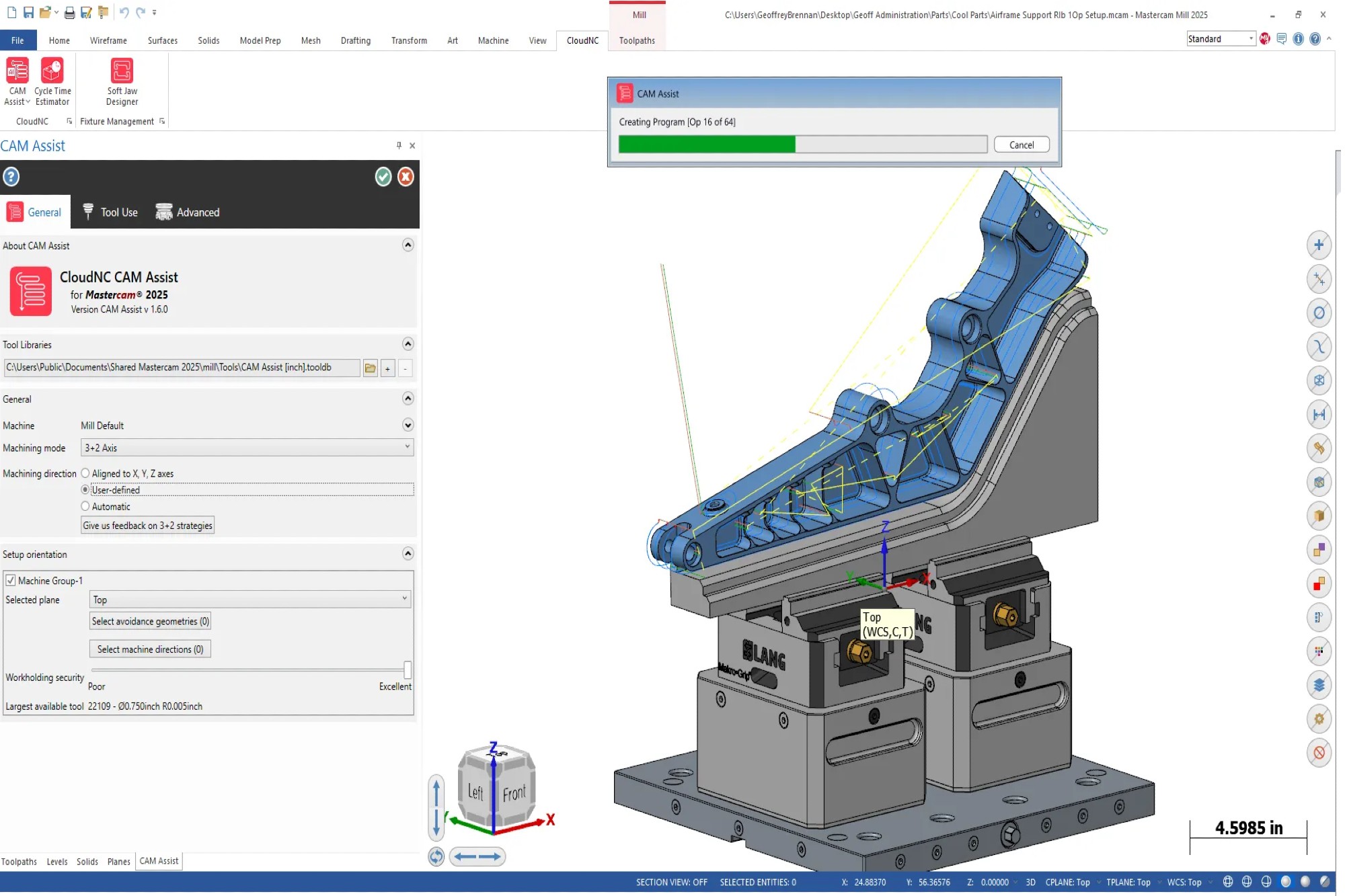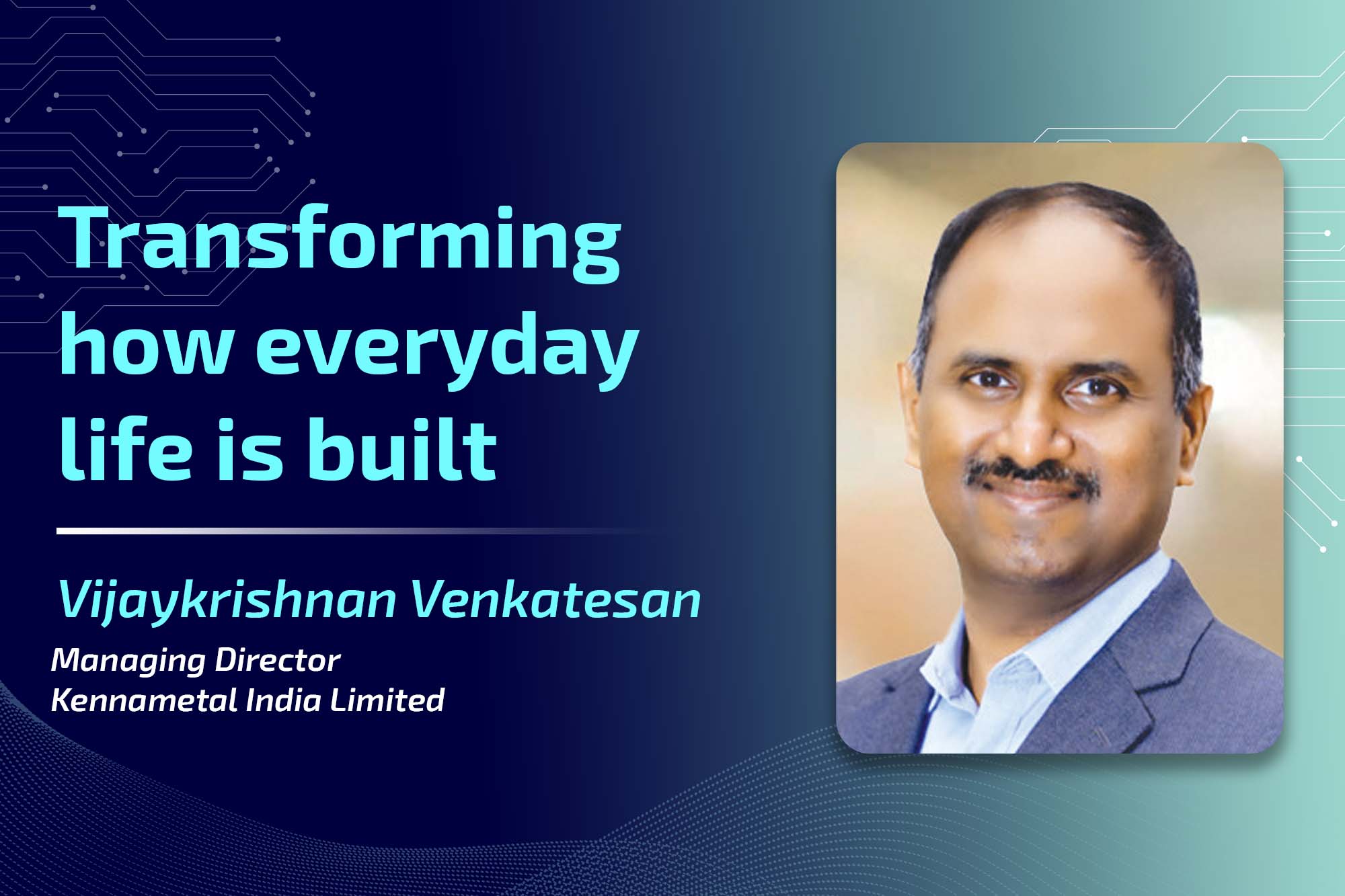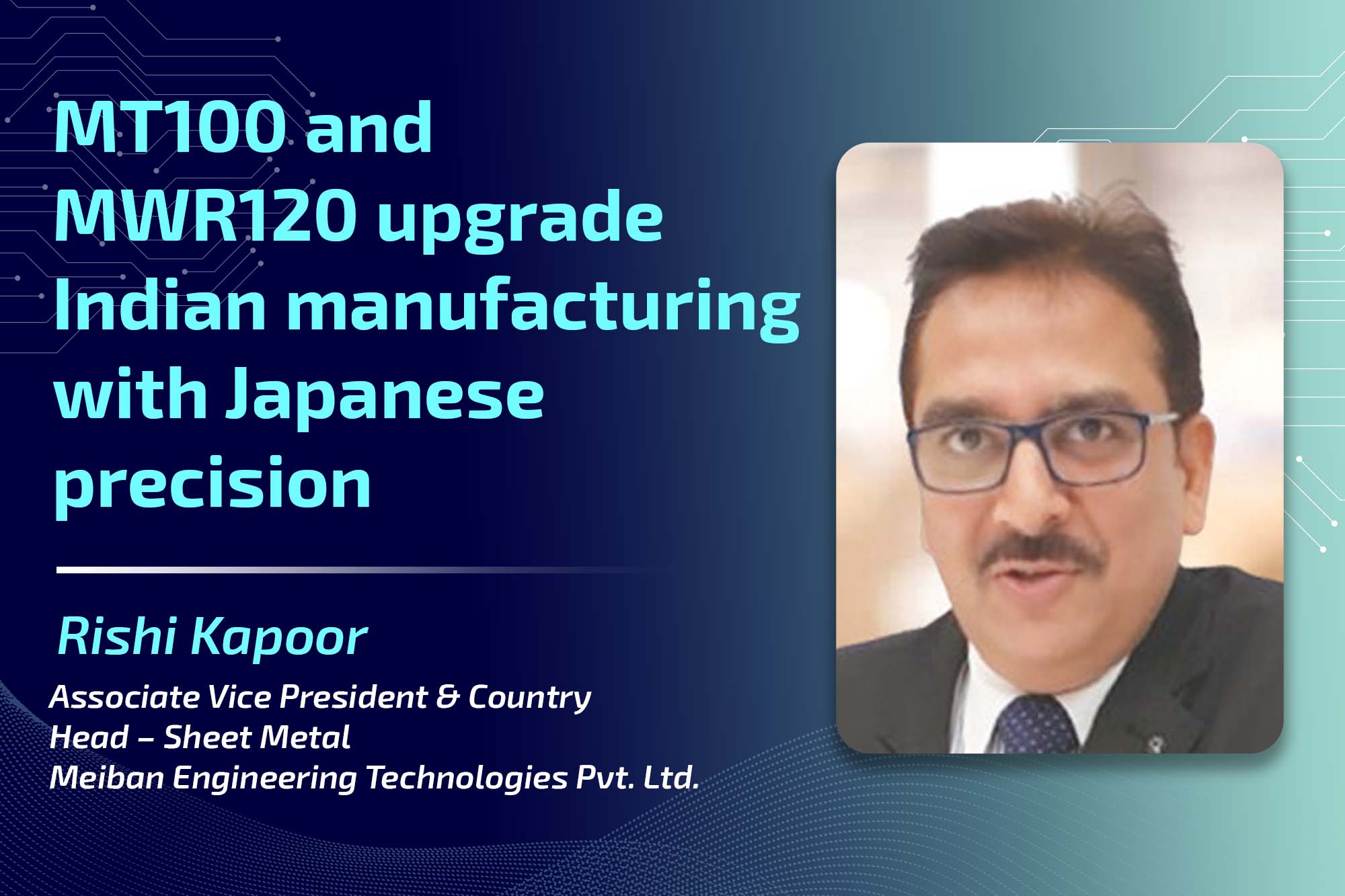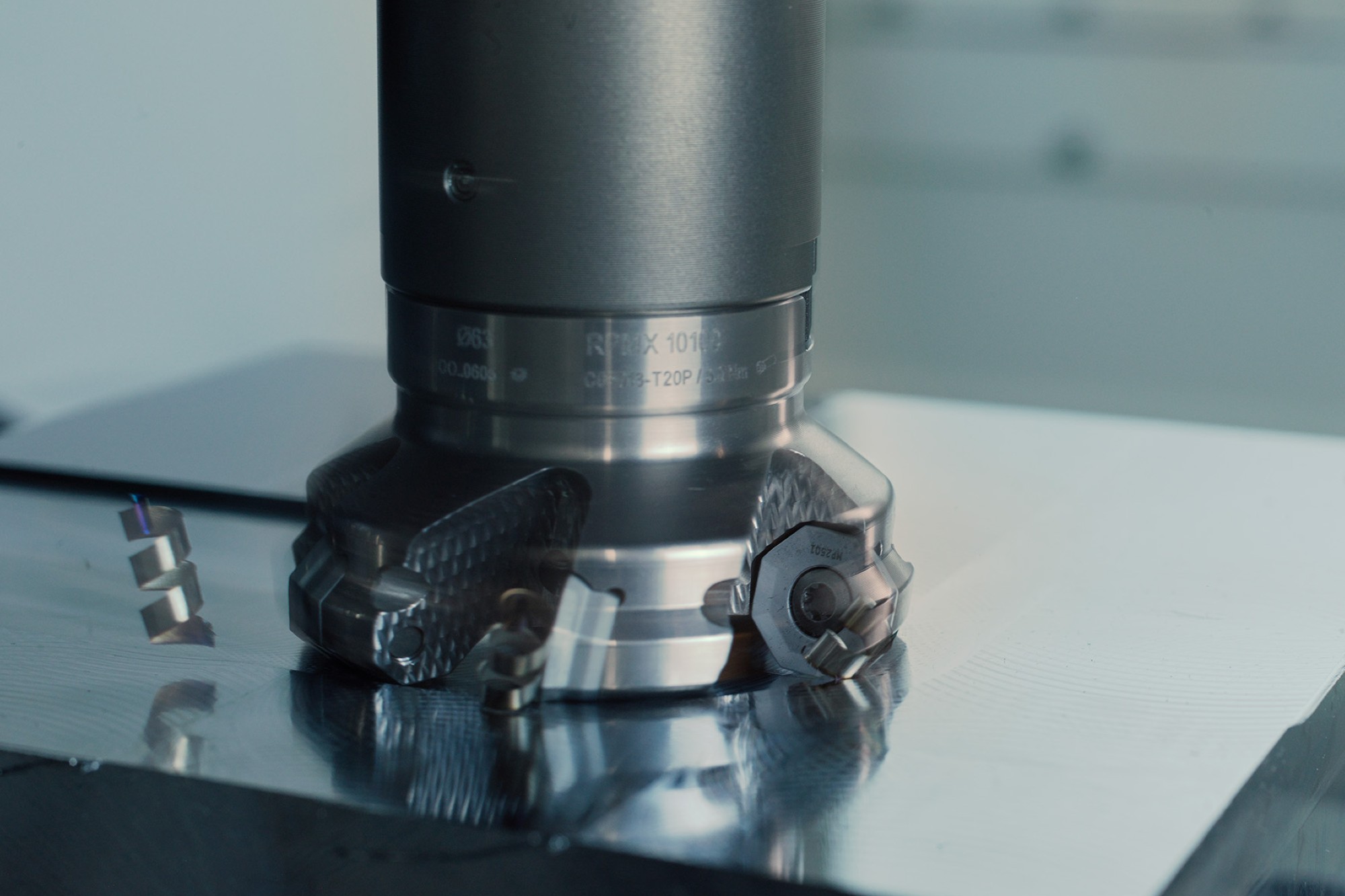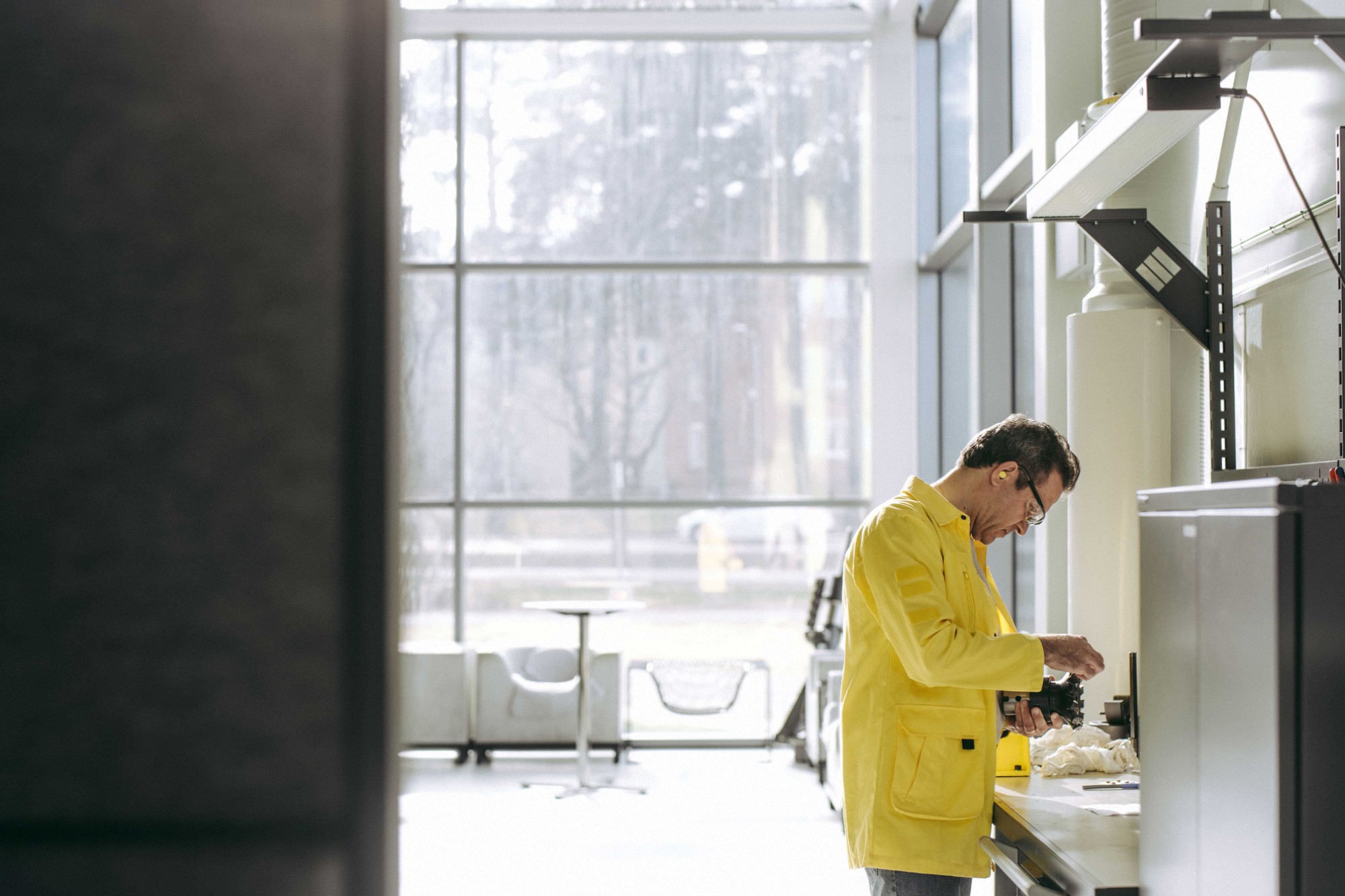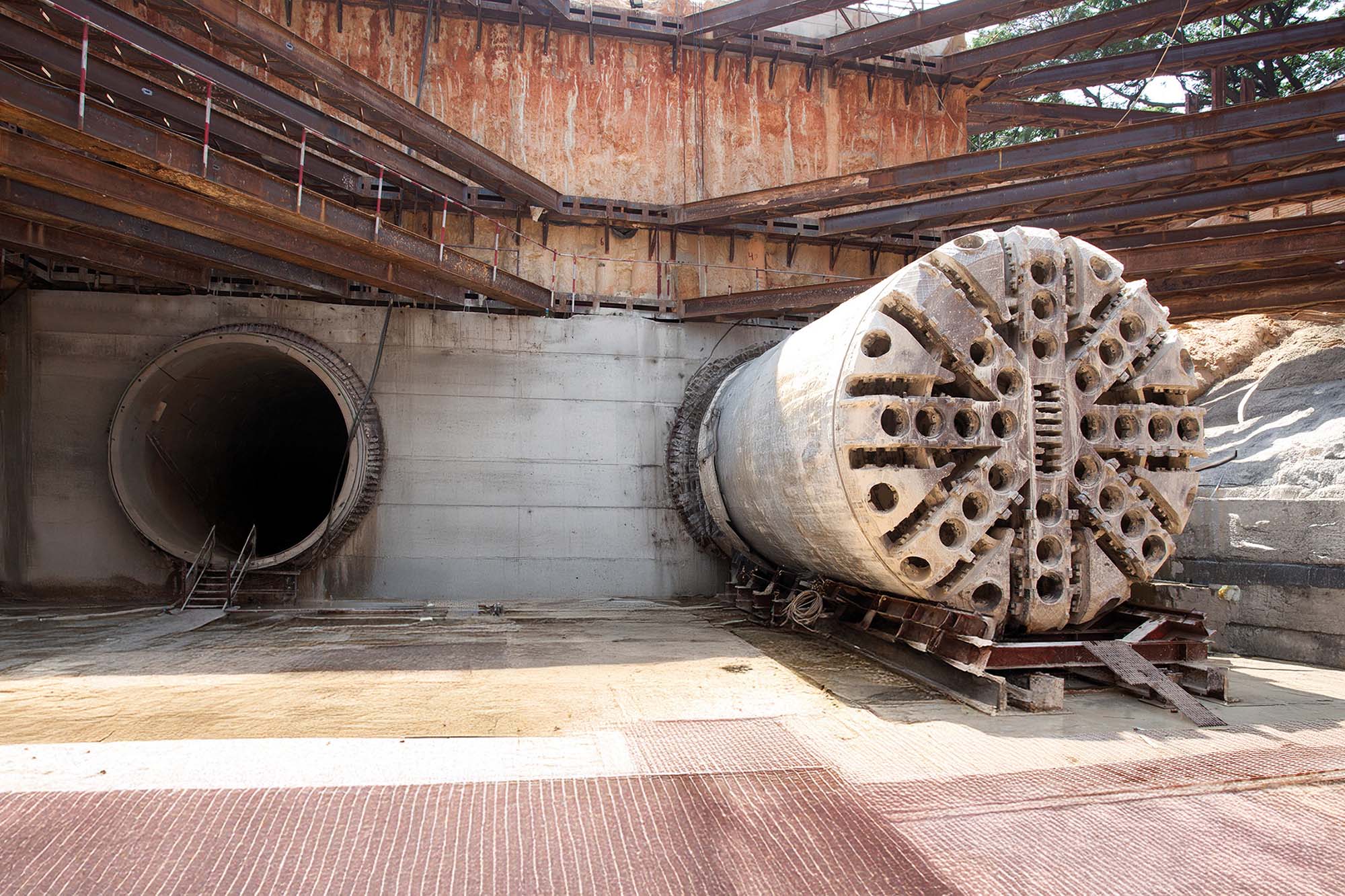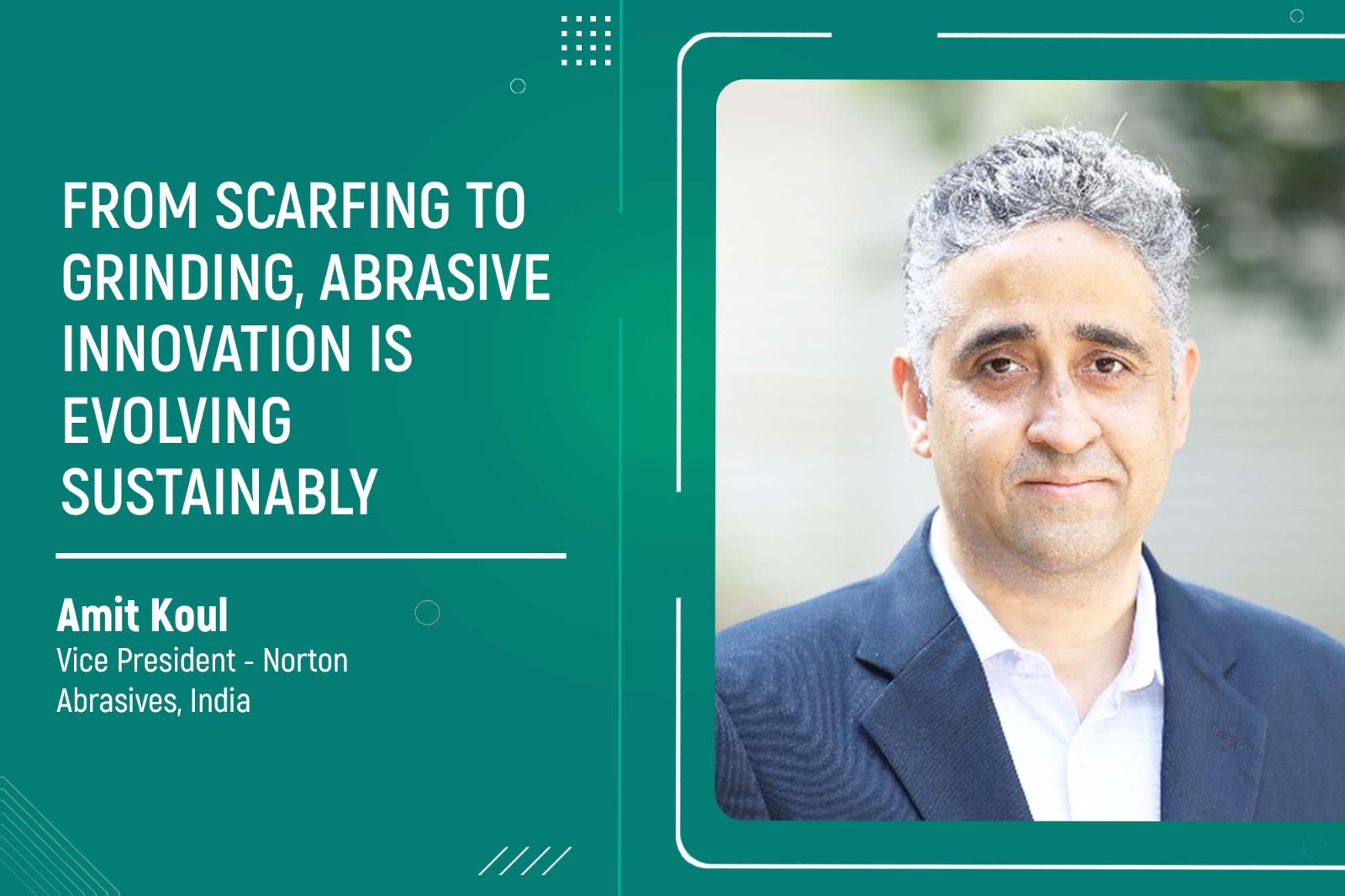Atmanirbhar Bharat gets a boost with German tech integration
By Staff Report December 30, 2024 11:43 am IST
VDMA (German Machinery and Equipment Manufacturers Association) is key in bringing German technology to India and promoting Indian innovations in Germany. Rajesh Nath, managing director of VDMA India, shares his optimistic vision for Indian manufacturing and adopting newer technologies.
What are the latest advancements in machine tools for precision and flexibility?
Additive manufacturing (3D printing) is being integrated with traditional machining, enabling rapid prototyping and the production of complex, customised parts. 5-axis CNC machines allow for higher precision by machining intricate geometries in a single setup, reducing cycle times. Robotic automation, including cobots, improves production efficiency by automating loading and unloading tasks. AI and machine learning are used for predictive maintenance and adaptive control, optimising operations and minimising downtime. High-speed machining with advanced spindles ensures faster cutting and superior surface quality, while hybrid manufacturing combines additive and subtractive methods to offer greater flexibility in producing complex components. These innovations are making machine tools smarter, faster, and more capable of meeting the demands of modern manufacturing.
How do you see the future of German engineering collaborating with Indian manufacturers with the rise of digitalisation and Industry 4.0?
The future of German engineering collaborating with Indian manufacturers is set to flourish with the rise of digitalisation and Industry 4.0. Germany’s strong legacy in precision engineering and advanced technology can complement India’s rapidly growing manufacturing sector, especially as India embraces smart factories, IoT-enabled machines, and AI-driven solutions.
German companies can bring cutting-edge technologies like automation, robotics, and advanced CNC systems, which can be integrated with India’s cost-effective manufacturing capabilities. This collaboration will help Indian manufacturers with productivity, quality control, and supply chain efficiency. The partnership also paves the way for knowledge transfer and the development of skilled workforces, driving innovation and enhancing India’s competitiveness in global markets. With government initiatives like Atmanirbhar Bharat and PLI schemes, the synergies between German technology and Indian manufacturing can accelerate growth, making India a key player in global supply chains.
What steps is VDMA taking to help Indian machine tool manufacturers adopt greener manufacturing practices?
We support Indian machine tool manufacturers adopting greener manufacturing practices through various initiatives. We promote the use of energy-efficient technologies and sustainable manufacturing solutions to reduce the environmental footprint of production processes. This includes encouraging the adoption of smart energy management systems, which optimise energy consumption.
We also facilitate knowledge exchange between German and Indian companies, helping Indian manufacturers integrate environmentally friendly production techniques, such as recycling and water management systems. Through workshops, seminars, and collaborations with Indian industry bodies, we emphasise the importance of eco-design and green certification for machine tools, assisting manufacturers in complying with international environmental standards. Our efforts align with India’s sustainability goals, and we support the Make in India initiative by promoting cleaner, more efficient technologies that drive environmental and economic benefits.
The application of 3D printing in the machine tool industry has yet to be explored fully. What opportunities and challenges do manufacturers anticipate?3D printing in the machine tool industry has introduced the production of complex, customised parts, rapid prototyping, and lightweight components that improve performance and reduce costs. It also lowers tooling expenses and material waste, making small-batch manufacturing more efficient. However, challenges remain, such as material limitations, slower production speeds compared to traditional methods, and the need for extensive post-processing. Additionally, the high initial investment in 3D printing technology can be a barrier for smaller manufacturers. While the potential is vast, overcoming these hurdles is key to broader adoption in the industry.
What innovation and R&D strategy is Germany’s machinery sector focusing on, and which should India adopt?
Germany’s machinery sector is at the forefront of integrating cutting-edge technologies like Industry 4.0, which incorporates IoT, AI, and big data to create smarter, more flexible production processes. Sustainability is also a key focus, with advancements in energy-efficient technologies, eco-friendly materials, and circular economy practices. The sector is also pioneering in advanced materials, such as lightweight composites, and AI-driven automation to increase precision, reduce waste, and improve operational efficiency.
India can benefit by adopting similar strategies, focusing on smart manufacturing systems like IoT and AI for real-time monitoring and predictive maintenance. Investing in energy-efficient technologies will reduce operational costs and align with global sustainability trends. Exploring additive manufacturing (3D printing) for prototyping and low-volume production can drive innovation in India’s machinery sector. Building cross-industry collaborations with academic institutions and global leaders in technology will accelerate R&D, driving the adoption of next-generation manufacturing techniques.
What role does IMTEX 2025 play in driving global collaborations and market expansion for machine tool builders?
IMTEX 2025 will bring together leading global manufacturers, suppliers, and technology providers to develop partnerships and knowledge exchange. The event will facilitate the entry of international players into the growing Indian market while providing Indian companies with exposure to global best practices and opportunities for international expansion. Through live demonstrations and networking opportunities, IMTEX 2025 will help machine tool builders stay ahead of the curve in automation, Industry 4.0, and sustainability, enhancing their competitiveness on the global stage.
Cookie Consent
We use cookies to personalize your experience. By continuing to visit this website you agree to our Terms & Conditions, Privacy Policy and Cookie Policy.



